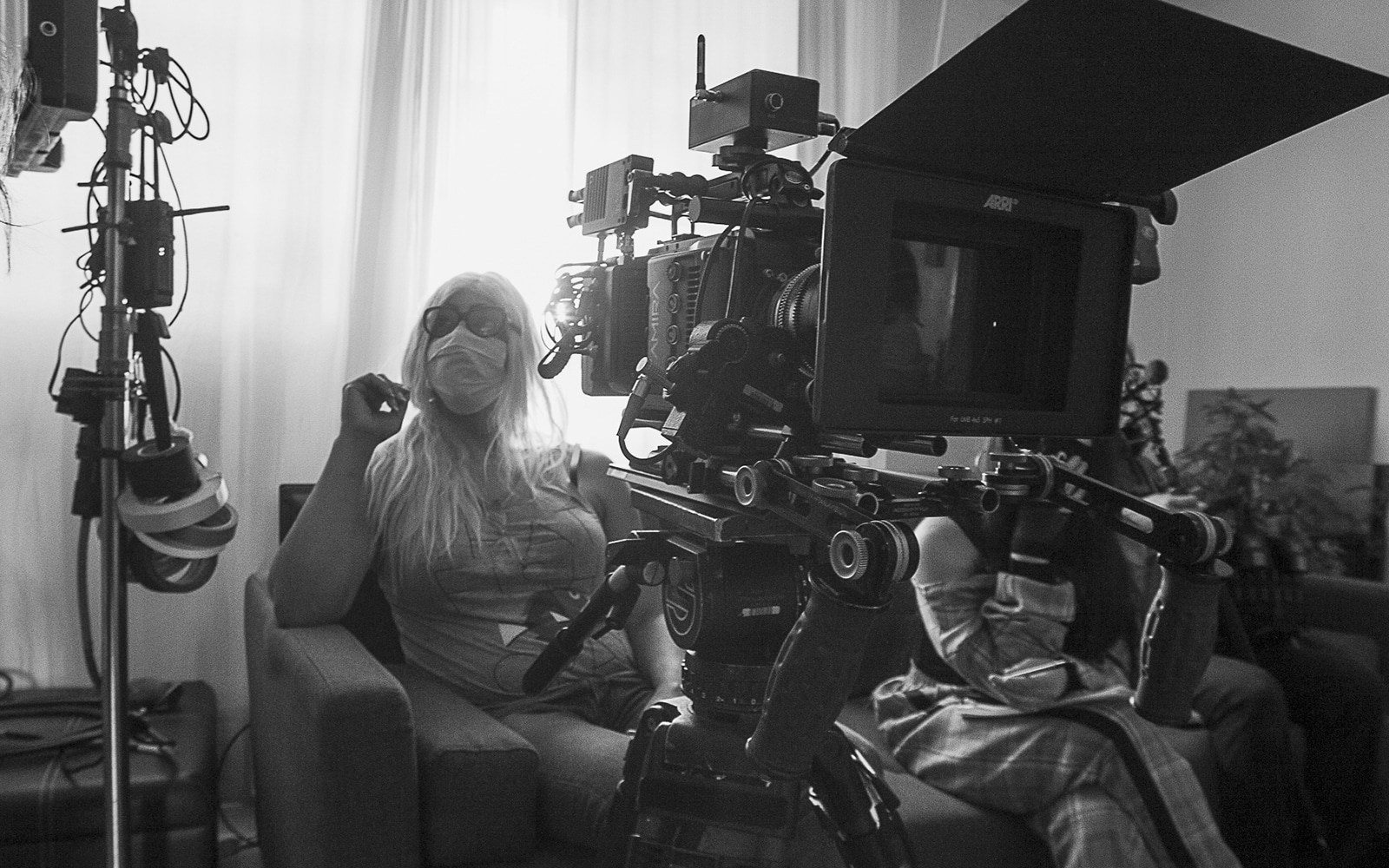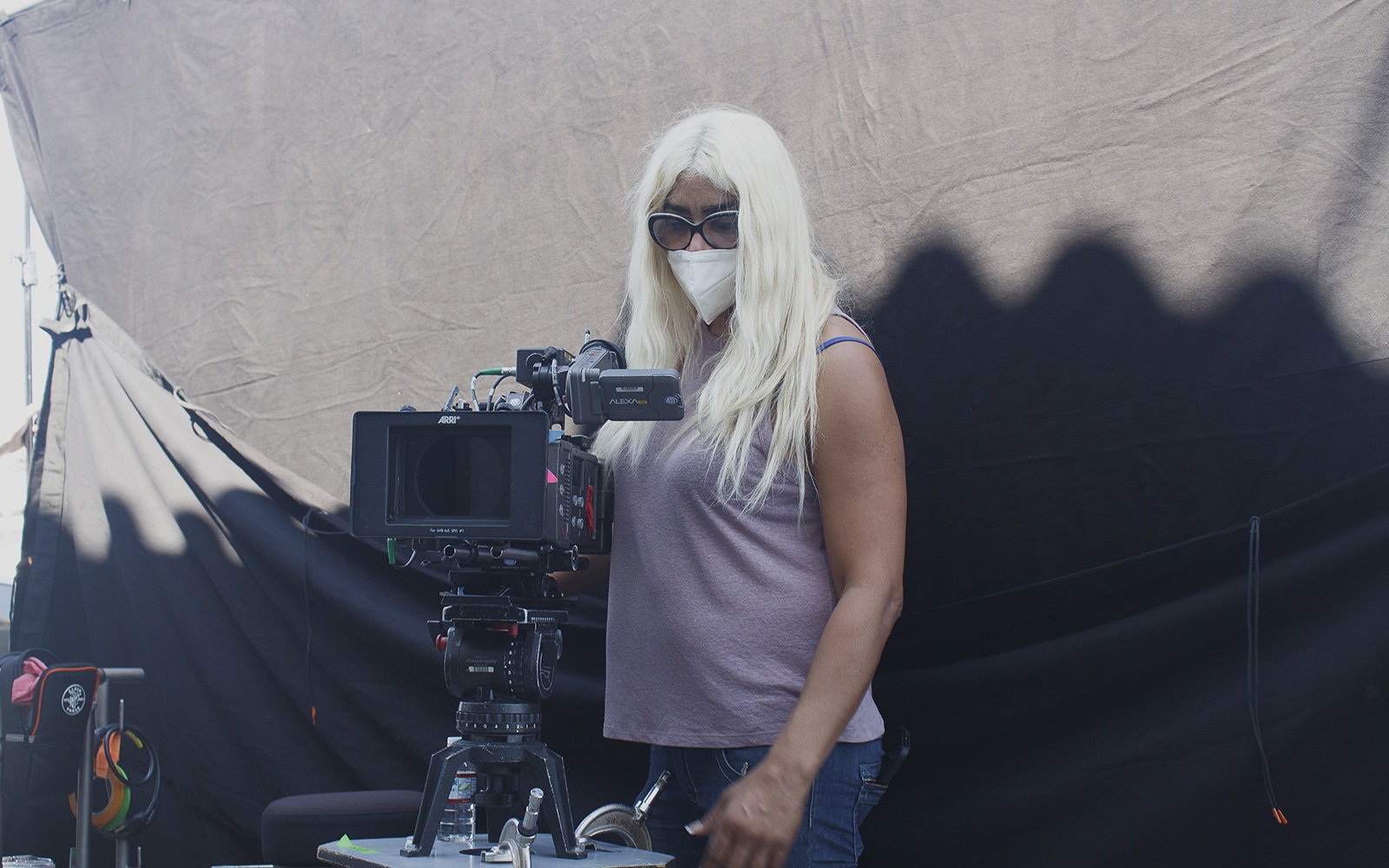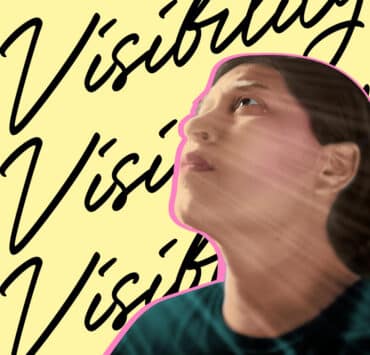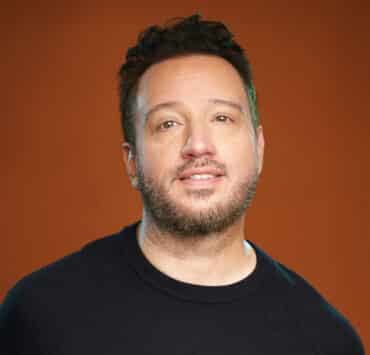|
Getting your Trinity Audio player ready...
|
The daughter of Dominican immigrants, Kase Peña gushes when she reflects on her time spent growing up in Inwood, New York, just across the bridge that separates it from the Bronx. This, and in and around New York City, is where her love for art was born.
“For me, when it came to falling in love with storytelling, there was no linear journey. It was more zigzag and all over the place,” Peña describes. It was clear that she took advantage of all the city had to offer to grow her creativity and embrace it.
“I often tell people that I was born an artist. Being young in New York City, I didn’t have access to filmmaking, but I had drawing, and I drew a lot,” she says. “Also, in NYC, I was surrounded by graffiti, which is really an art form. That was the beginning of my journey as a storyteller.”
When chatting with Peña, it is evident that she is a true New Yorker. This is also true when watching any of her short films or her Los Angeles film series, Trans Los Angeles. The four completed segments depict real, stand-alone trans stories based on real members of the community whom Peña knows.
“We can’t always go to Hollywood for our films; sometimes we need to make our own films ourselves.”
Kase Peña
As her love for storytelling began to take shape, she chose to leave behind other interests such as playing basketball and baseball competitively, which she did at the age of eighteen. Peña was gearing up for the next phase of her life when she was preparing to enter film school at the City College of NY Film School to formally study her craft.
She credits mentors and professors in the program who encouraged her to take electives that could only enhance her curriculum as a film student and also give her more tools to add to her little bag of tricks as she prepared to make films. “When I was a junior in film school, I took my first screenwriting class and that was the beginning of my journey as a writer,” she explains. “Also, a professor of mine suggested that for my two electives I take photography courses to help me learn about cameras, lenses, and start understanding lighting to start applying those techniques to my filmmaking as well. One is still and one is motion, but they both tell stories.”

After she finished film school and continued to produce indie film projects, the LA itch was calling to her. Peña knew that if she wanted to take another bite of the filmmaking apple, she would need to leave the Big Apple. “When I was growing up, I always wanted to visit big cities and, of course, the industry was always in LA, so I always wanted to head to LA because the business is here,” she recalls. “Coming here as an independent filmmaker from New York, I had to learn that people over here are more into genre films and not so much into indies, and that is fine as I can do both.”
Upon arriving in LA, Peña would do what many other LGBTQ+ transplants to LA do: visit and/or join community organizations that provide all types of services to their members. These organizations can be places to connect with other members of the community or provide other methods of help such medical services, counseling, support groups, etc.
For Peña, it would serve a purpose of a chance meeting with Bamby Salcedo, CEO and president of TransLatin@ Coalition.
Years later, when Peña was beginning to make her film series Trans LA, she would insert a pivotal clip with the storyline where Carmen Carerra’s character enters the actual TransLatin@ facility in LA. Peña didn’t stop there. It was important for her to cast actual TransLatin@ workers in the scenes at the facility.
While she finished writing all four parts of the anthology in February 2020 and was gearing up to start production in March 2020, she had to halt production due to the onset of the pandemic. During that time, she was able to get funds via programs from Netflix and WarnerMedia 150. She took it upon herself to raise funds for the third segment of the film and hit her initial goal. Much of what she raised included in-kind services to take care of crucial pieces of the post-production.

While Peña is truly loving the process of filmmaking, whether it be indie or genre, she isn’t immune to the hurdles within the process of getting your project completed—the financing being the most important. Her tenacity and commitment to get the project done has required her wear the fundraising hat on a continuous basis, and she’s doing so currently to complete the fourth and final piece of her anthology.
“We can’t always go to Hollywood for our films; sometimes we need to make our own films ourselves. I have done 75 percent of the fundraising so far for this project, and I am prepared to keep at it and see it through,” Peña says in her summer 2024 interview. “I am definitely not asking for permission to finish. I’m not worried.”
Whether she brings in more financial support to help complete the project sooner rather than later or if she spends more time raising the dollars herself to complete her work, Peña is a sure bet. “I am a Latina, trans Dominican director, and there is nothing out there right now like my film. Nothing.”
Editor’s note, 1/28/25: Kase Peña has finished her true, independent feature film Trans Los Angeles, which will be available for streaming soon. Given the increase of hateful, dangerous rhetoric, Peña’s film is more relevant, important, and needed than ever.

